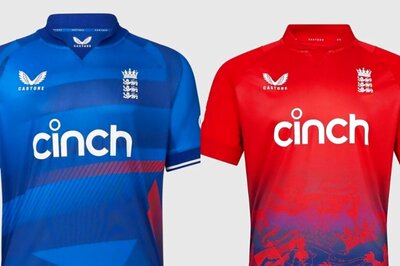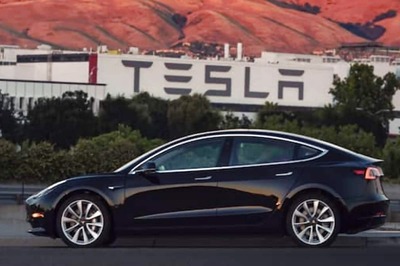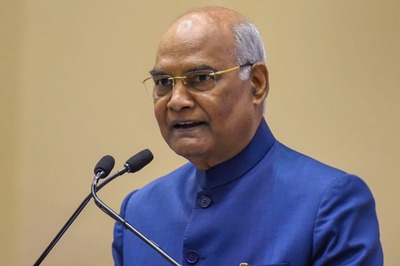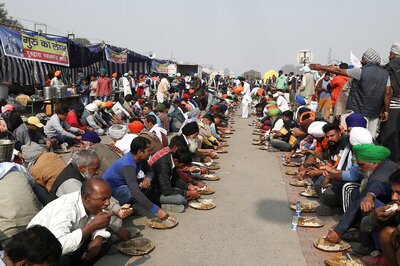
views
Islamabad: Dr Arif Alvi, a close ally of Prime Minister Imran Khan and one of the founding members of the Pakistan Tehreek-e-Insaf party, was elected as the new President of Pakistan Tuesday, as the cricketer-turned-politician consolidated his grip on power.
The 69-year-old former dentist defeated Pakistan Peoples Party candidate Aitzaz Ahsan and the Pakistan Muslim League-N nominee Maulana Fazl ur Rehman in a three-way contest to become the 13th president.
Of the 430 votes cast via a secret ballot in the National Assembly and Senate, Alvi received 212 votes, Rehman bagged 131 and Ahsan garnered 81; six votes were rejected, DawnNews reported, citing unofficial results.
Alvi secured 45 of the 60 votes cast by the Balochistan's newly elected lawmakers, it said.
In the PPP-dominated Sindh Assembly, Ahsan got 100 votes, while Alvi bagged 56. Just a solitary vote was cast in the favour of Rehman.
In Khyber Pakhtunkhwa Assembly, Alvi received 78 of the total 109 votes, while Rehman and Ahsan got 26 and five votes respectively.
In Punjab Assembly, Alvi secured 186 votes, whereas Rehman and Ahsan received 141 and 6 votes respectively; 18 votes were rejected.
In his victory speech, Alvi thanked Prime Minister Khan for nominating "me for such a big responsibility."
Alvi said that "from today I am not just president that was nominated by the PTI but I am the president of the entire nation and all parties. Each party has an equal right on me".
The newly elected president will take oath of the office on September 9. Outgoing President Mamnoon Hussain's five-year tenure ends on September 8.
Alvi said he will invite everyone, including the opposition, for the oath-taking ceremony.
"My political struggle dates back to 1967, since the time of Ayub Khan. However, I believe that this nation has gained much awareness since. The president also promises whatever is promised in the Constitution," he said.
Alvi is one of the founding members of PTI. He served as the party's secretary general from 2006 to 2013.
He won the National Assembly elections from NA-247 (Karachi) during the July 25 polls. He was also elected member of the National Assembly in the 2013 general election.
In Pakistan, the President is considered as a symbol of the federation and head of the state and exercises all powers on the recommendations of the prime minister.
Prime Minister Khan, who is said to have the backing of the powerful military establishment, has consolidated his grip over power by nominating the governors of the all four provinces and appointing his key ally as the chief minister of the most populous and politically crucial state of Punjab.
With his close ally Alvi as President, Khan can smoothly implement his agenda, according to observers.
The presidential voting system is complex, as the elections for the top post are held on the basis of proportional representation to give equal representation to the four provinces.
Each lawmaker of Senate (104 members), National Assembly (342) and Balochistan Assembly (65) has one vote. But the vote of Punjab, Sindh and Khyber-Pakhtunkhwa assemblies is determined on the basis of proportional representation and each assembly has been allotted 65 votes - equal to the total number of members in the assembly with the least members, that is, the Balochistan Assembly.
Accordingly, 5.70 Punjab parliamentarians makeup 1 vote, 2.58 in Sindh, 1.90 in Khyber Pakhtunkhwa, while lawmakers in Balochistan, the smallest assembly, get one vote each.
Thus, according to the law, the president is elected by the Electoral College consisting of 706 votes of all lawmakers.




















Comments
0 comment